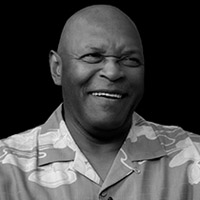Revisiting Your Will
[vc_row][vc_column][vc_column_text]
Revisiting Your Will
The importance of having a will cannot be overemphasized. It’s not simply the way that you direct the distribution of your financial and personal assets. Your will also enables you to designate an executor (or personal representative) who will act in your stead to meet your obligations and steer your assets through the probate process. If you have minor children, your will allows you to name a guardian who will see to their upbringing if you and your spouse should die with the task unfinished.
Of course, no will is final until its author dies, or is otherwise unable to change it. As circumstances change, provisions of an existing will can become hopelessly out-of-date. In any case, its wise to review your will from time to time to see whether adjustments may be in order. Nevertheless, certain categories of family and financial changes make a prompt will review a top priority.
Personal status
Naturally, when you marry, divorce or remarry, changes in the provisions of your will are called for. At the same time, you’ll want to review beneficiary designations in retirement plans and life insurance policies as well.
A move to a new state, or simply acquiring assets in a different state, means that at least some of your property will be subject to a different set of laws from those under which your will was drafted originally. Thus, it should be reviewed and revised by an adviser versed in the workings of the new state’s inheritance laws.
When you have named specific assets in your will, such as a block of XYZ Corp. stock or a vacation home, you’ll need to make revisions when you dispose of the named property. You also may wish to make adjustments when a given asset changes substantially in value.
Retirement, a time of sharp change in your sources of support, is also a time for will review to ensure that it is based on your current resources.
Children
As mentioned above, your will is the place to provide for the guardianship of your offspring. You’d probably want to name an alternative guardian as well, in case your first choice is unable or unwilling to serve.
If you’ll be leaving a substantial sum to provide for your children’s care, you may wish to set up a trust for that purpose in your will. That course may be advisable because in some states guardians are under strict court supervision as to the investment and expenditure of a child’s inheritance.
Other appropriate changes to your will would be in order when your children reach majority, marry, become disabled, or experience other major changes in their personal or financial situation. Certainly, the birth or adoption of a grandchild is an event worthy of consideration.
Your financial status
If your net worth has increased significantly since you wrote your current will, revisions undoubtedly will be in order. Your larger estate gives you more opportunities to provide for family, friends and favored charitable causes. So you’ll want to be certain that assets are managed and distributed as you think best.
Estates that grow in value naturally grow in complexity as well. As a result, you may need to add special instructions for dealing with a business interest, an art collection,
copyrights or other not-so-simple assets. Also, as your wealth expands, so does your exposure to gift and estate taxes. A simple everything-to-my-spouse will can bring on hundreds of thousands of dollars of needless estate taxes.
Currently, a person can transfer up to $1.5 million to others without incurring any gift tax or estate tax. (This amount is scheduled to rise dramatically over the next few years till reaching $3.5 million in 2009.) Assets left to a spouse pass tax-free without limit. Leaving everything to your spouse, however, can result in higher estate taxes at his or her death because the value of your “applicable exclusion amount” will be lost.
The full benefit of both spouses’ exclusions can be preserved by placing amounts equal to the currently allowed amount in trusts that provide the surviving spouse with lifetime income, yet remain sheltered from tax at his or her death.
Legal developments
Federal and state tax laws are subject to change at any time. Thus it’s important for you and your financial advisers to stay on top of these developments and make adjustments to your estate plans as required.
You will note that these arrangements rapidly become too complex to be placed in the hands of an untrained individual. The executor or personal representative named in your will needs to have the time and know-how to protect estate assets, collect debts, settle claims, manage investments, keep records and minimize tax exposure. To avoid burdening a family member or friend, you might choose to designate us to handle the settlement of your estate and provide long-term management as trustee. We’d also be happy to act as coexecutor with a family member to ease his or her burden.[/vc_column_text][/vc_column][/vc_row]
Beyond Baseball | Vida Blue
About Vida Blue Six time All Star, 3 time world series champion, MVP and Cy Young Award winner Vida Blue is quite a Baseball legend. Listen to his first hand experiences of what it’s like to play professional baseball and what’s the legend doing today? Interview Transcript: Alan Welcome back. I’m here today…
Disrupting The Aerospace Defense Industry with Additive Manufacturing | Kenneth Epstein
About Kenneth Epstein Ken is a principal with NewCap Partners & brings 20+years of investment banking & venture management experience, including P&L responsibility for both major business units and startups. His diverse client base includes private & family-owned businesses, strategic equity investors, large corporate venture funds, & material, high-tech & life science firms. Ken’s transaction…
The Science of Change Management | Gary Boomer
About Gary Boomer L. Gary Boomer is the Visionary & Strategist of Boomer Consulting, Inc., an organization that provides consulting services and peer communities to leading accounting firms. BCI’s vision is to make you more successful and future ready. The areas of focus are: Planning, People and Processes with technology as the accelerator. Gary is…
Predicting Success | Mike Kwantinetz
About Mike Kwatinetz Mike Kwatinetz is a founding General Partner with Azure Capital Partners where he specializes in software and related infrastructure technologies. His current board memberships are Chairish, Education.com, Julep, JumpStart, Le Tote, Medsphere, Open Road and Silkroad and he led Azure’s investment in FilterEasy, Maker Media, Coffee Meets Bagel, Sprinklr and Tripping. He…




